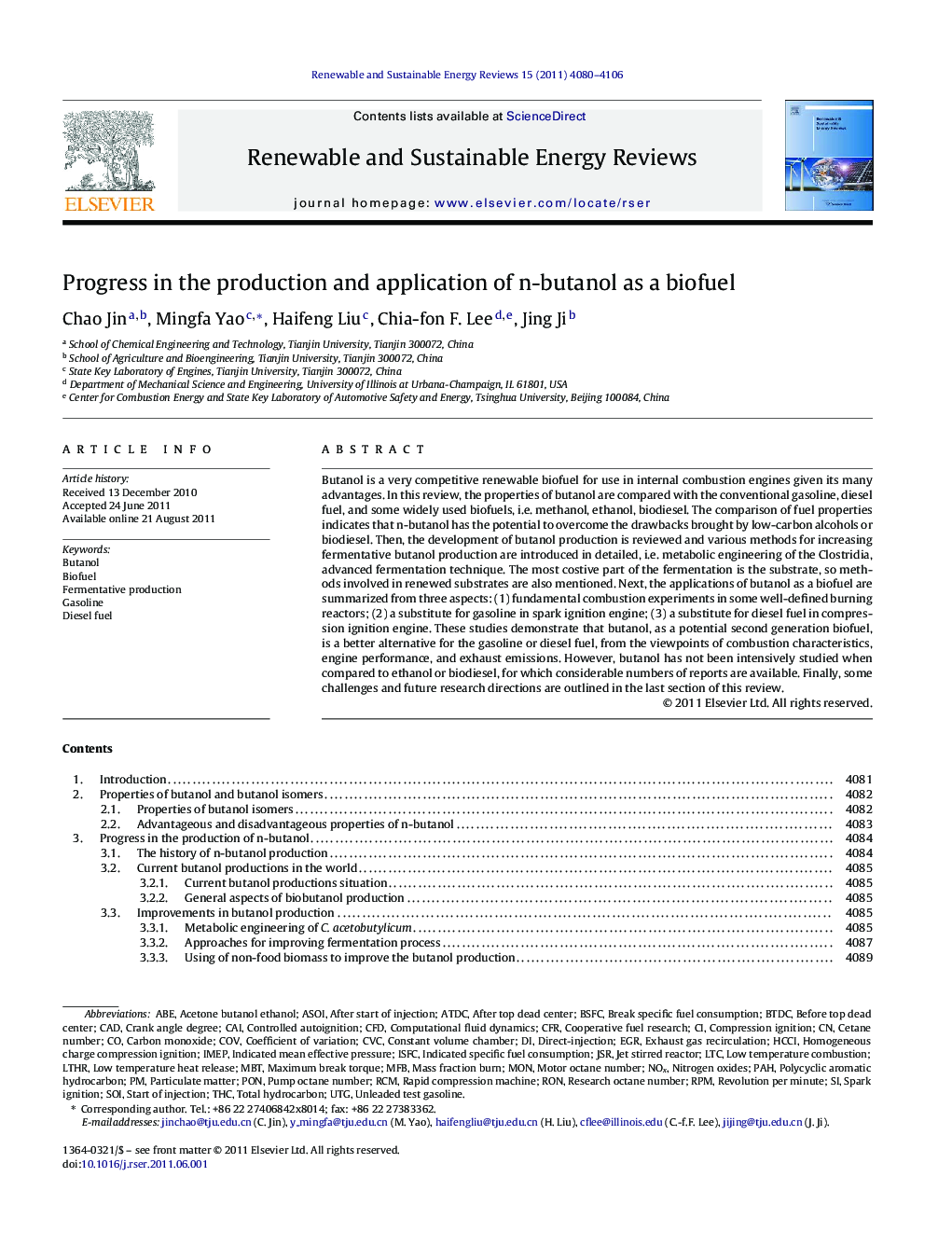| Article ID | Journal | Published Year | Pages | File Type |
|---|---|---|---|---|
| 1750862 | Renewable and Sustainable Energy Reviews | 2011 | 27 Pages |
Abstract
Butanol is a very competitive renewable biofuel for use in internal combustion engines given its many advantages. In this review, the properties of butanol are compared with the conventional gasoline, diesel fuel, and some widely used biofuels, i.e. methanol, ethanol, biodiesel. The comparison of fuel properties indicates that n-butanol has the potential to overcome the drawbacks brought by low-carbon alcohols or biodiesel. Then, the development of butanol production is reviewed and various methods for increasing fermentative butanol production are introduced in detailed, i.e. metabolic engineering of the Clostridia, advanced fermentation technique. The most costive part of the fermentation is the substrate, so methods involved in renewed substrates are also mentioned. Next, the applications of butanol as a biofuel are summarized from three aspects: (1) fundamental combustion experiments in some well-defined burning reactors; (2) a substitute for gasoline in spark ignition engine; (3) a substitute for diesel fuel in compression ignition engine. These studies demonstrate that butanol, as a potential second generation biofuel, is a better alternative for the gasoline or diesel fuel, from the viewpoints of combustion characteristics, engine performance, and exhaust emissions. However, butanol has not been intensively studied when compared to ethanol or biodiesel, for which considerable numbers of reports are available. Finally, some challenges and future research directions are outlined in the last section of this review.
Keywords
break specific fuel consumptionHCCIABEMBTRCMRPMaSOIIMEPISFCBSFCPAHJSRaTDCEGRCFRLTCLTHRMFBCVCCAITHCSOIControlled autoignitionPONbTDCNOxCOVLow temperature combustioncompression ignitionLow temperature heat releaserevolution per minuteResearch Octane NumberNitrogen oxidesafter top dead centerButanolcooperative fuel researchDirect-injectionCetane numberspark ignitioncrank angle degreeRapid compression machineCFDComputational fluid dynamicsparticulate matterJet stirred reactorRONDiesel fuelBiofuelHomogeneous Charge Compression IgnitionStart of injectionmotor octane numberCoefficient of VariationCADbefore top dead centerConstant volume chamberIndicated Specific Fuel Consumptioncarbon monoxideMONIndicated mean effective pressuregasoline Polycyclic aromatic hydrocarbonafter start of injectionMass fraction burntotal hydrocarbonexhaust gas recirculation
Related Topics
Physical Sciences and Engineering
Energy
Renewable Energy, Sustainability and the Environment
Authors
Chao Jin, Mingfa Yao, Haifeng Liu, Chia-fon F. Lee, Jing Ji,
